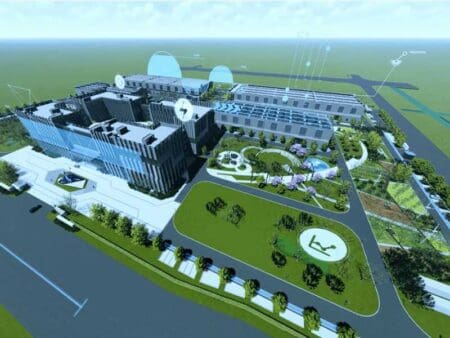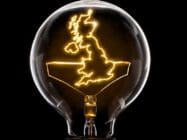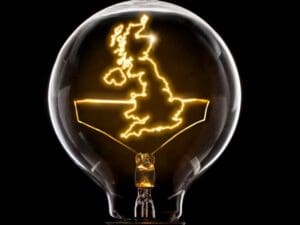
T3 transformation, which encompasses digital transformation, energy transformation and net-zero carbon transformation, is a new model for propelling today’s campuses into the future through systematic reformation and innovation. As the basic unit scenario of T3 transformation, the Net-zero Carbon Intelligent Campus integrates planning, construction, and operation, enabling sustainable social development, and helping nations such as China achieve the carbon-neutral goal.
The world is consuming increasingly more energy, which causes higher carbon emissions. A lot rides on each country’s contribution to global carbon neutrality goals. On the long journey towards net-zero carbon, energy transformation will be crucial. And digital is its driving force.
Net-zero carbon transformation
Currently, the global energy and industry systems are undergoing a full-scale transformation, aiming to reduce carbon emissions and increase the proportion of clean energy. There is a big push towards decarbonisation, where energy systems are evolving to be more diversified, and intelligence is playing a larger role in energy optimisation.

While energy and information help society advance, they also put enormous pressure on our environment. The T3 development system proposes a series of methodologies to reverse the negative impact social development has on the environment, and instead, make them work to achieve sustainable and social benefits. For this, the systematical approach will help reduce energy consumption and carbon emissions at every step of the way, covering strategy, management, business and technology pillars.
More specifically, the T3 development system refers to the net-zero carbon, energy and digital transformations in the ecology, industry and technology fields, supporting their evolution and upgrade. The model establishes zero-carbon intelligent energy system centred on data and information. By integrating energy, carbon, information and value flows, this will promote clean, efficient, and sustainable social development by relying on digital transformation to boost energy transition and approach carbon neutrality targets.

On the national level, we need T3 transformation to help build integrated zero-carbon intelligent energy infrastructure powered by digital technologies. For this, we need clear and practical transformation goals that target the current state of national energy, resources and industries. Policies must guide low-carbon economic development and promote industry upgrade, regional development, energy transition, low-carbon living, energy-saving, and environmental protection.
On a municipal level, we should develop capabilities related to zero-carbon and energy transformation, feeding into the larger objectives of T3 transformation model. We should rely on digital technologies to enable low-carbon governance, energy efficiency improvement and carbon-energy synergy, creating a zero-carbon city governance system with integrated planning, construction, and operation.
Within this context, campuses will act as the basic units of cities, placing them at the core of industrial aggregation and development. As such, campuses already play a vital role in the implementation of dual-carbon strategies.
2. Promote T3 transformation by showcasing net-zero carbon intelligent campuses
Nearly 17,000 campuses contribute to over half of China’s industrial output and consume nearly 70% of the national industrial energy. Industrial campuses alone account for 31% of the country’s total carbon emissions. To promote low carbon transformation, the State Council of China published the Action Plan for Carbon Dioxide Peaking Before 2030. [SC1]
The plan proposes the selection of 100 typical pilot cities/campuses and supporting them with policies, funds and technologies to facilitate their carbon neutrality. Therefore, it is eminent that there is a huge market space for net-zero carbon intelligent campuses. The global investment into the energy transition is predicted to reach US$131 trillion by 2050; China’s investment alone will reach CNY138 trillion (nearly US$22 trillion) and over CNY1 trillion will be invested to net-zero carbon intelligent campuses during the 14th Five-Year Plan (2021–2025).
Amid this progress, campuses are facing significant challenges. While confronted with various complex business requirements, campuses lack top-level designs, mature technology systems and clear business models. Systematic methodologies and ecosystem-based operations are urgently needed to help campuses keep up with the pace and goals of green transformation.
The T3 development model provides a viable solution. The model envisions net-zero carbon intelligent campuses not as a static concept but as a phased and dynamic evolutionary journey of development. The first phase is intelligent campus (low carbon), where distributed energy resources are adopted to promote energy saving and efficiency. The second phase is intelligent energy campus (near zero-carbon), during which campuses see the development of a zero-carbon intelligent energy system. The third phase — zero-carbon intelligent campus (net-zero-carbon) — integrates multi-energy complementarity and energy efficiency along with full lifecycle carbon management.Together with carbon-energy synergy, big data, and optimization of business models,this creates a clear development path for today’s campuses. Each individual campus can draw on local energy resources to develop phased transformation objectives throughout the digital journey, towards zero-carbon, energy and digitalisation transformations.

In Practice, the T3 development model addresses the whole value chain, from energy production and transmission to consumption, dispatch and transaction. The Yancheng Power Supply Company of State Grid has chosen Huawei as their partner for energy digital transformation. After deploying the Huawei’s low-carbon and intelligent energy solution, the company successfully transformed their campus management from traditional property and energy-saving management to a carbon one, thus effectively drive energy digitalisation in their industrial park, and help build a ‘digital and low-carbon Yancheng’. “The solution lays a solid technical and practical foundation for the Yancheng Power Supply Company to explore the emerging digital energy market, build a comprehensive energy sharing ecosystem, and promote the construction of new power systems.” shared by the representative of the Yancheng Power Supply Company.

For its use of net-zero carbon intelligent campus solution at Yancheng Low-carbon & Smart Energy Industrial Park project, Huawei was named Champion at the World Summit on the Information Society (WSIS) 2022 Forum’s Prizes Ceremony, which was co-organized by the ITU, UNESCO, and the UNDP to advance global sustainable development goals.

A net-zero carbon intelligent campus solution should facilitate green and intelligent operations by integrating all subsystems, multiple energy resources, as well as power generation, grid, load and storage, to save energy and improve efficiency while reducing the Scope 1 and Scope 2 carbon emissions. Negative emissions technologies and carbon transactions will help reduce carbon emissions, while CCUS and carbon sink will be deployed to achieve carbon neutrality.
Digital platforms are the foundation of such a solution. Cloud-pipe-edge-device collaboration can interconnect and complement energy and carbon management, while intelligent energy solutions and big data technologies will support micro-carbon management, provide carbon-energy synergy and more efficiency in intelligent campus operations. Together, they will help build intelligent and agile campuses that are green and efficient, where all domains are converged.
Visit the EBG energy website here
Access the energy transition and zero-carbon white paper here
About the author

Dr. Anthony Hu is the President of Strategy, Electric Power Digitalization BU at Huawei Enterprise BG. Hu has a Ph.D. of University of Minnesota & BUPT, EMBA (phase I) from the International Institute for Management Development (IMD), Switzerland. He is the former Director of ICT & strategic planning of European national power grid operator, Branch Director of technical management, ICT, overseas M&A in State Grid of China. Anthony is also a senior Member of the overseas executive team, technical Expert in digitalization transformation and procurement of State Grid of China.








